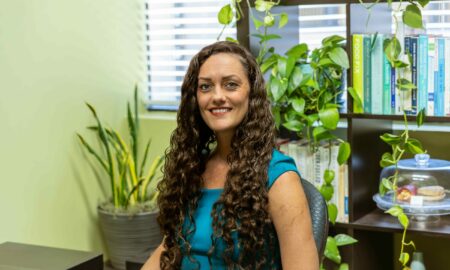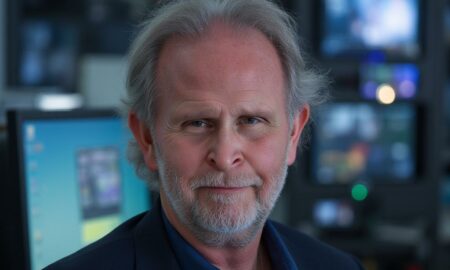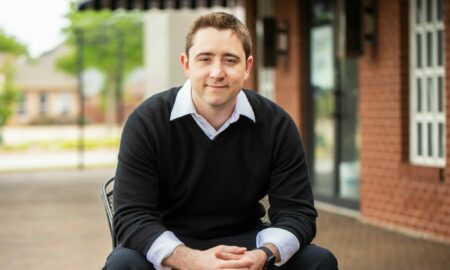

Today we’d like to introduce you to Nikki Moses.
Nikki, let’s start with your story. We’d love to hear how you got started and how the journey has been so far.
How I got started was truly happenstance. My parents actually pushed for me to go into Law, so I attended Law Magnet at Townview High School in Dallas, Texas. I knew deep down this was not my passion.
My mom helped raise my cousin who was diagnosed with a co-morbid diagnosis at the age of 3. We loved her for who she was and who she has become along with all of her quirks. Today, she is high functioning, but still continues to require supervision. This was the imprint that changed my life. However, just like many other students entering into college, I was still unsure of what field would lead me to doing something I truly loved. So, my freshman year at the University of North Texas in 1997, I had a double major in Psychology and Business Computer Information Systems. I know that sounds crazy, but being the first member in my family to attend college, I told myself that there was nothing I couldn’t do.
I soared with learning different programs with computers, was extremely strong in math and science, but knew I wanted to help people so I tried both. However, by the end of my sophomore year going into my junior year, I was bored with sitting in front of a computer and knew I needed more interaction with people. I wanted to be apart of a field that was more hands-on and where I could blend science, psychology and still work with children and I knew I didn’t want to be a teacher. I went to my advisor and he asked me one question, “Have you heard of Applied Behavior Analysis?” He arranged for me to take one class to see if I liked it and the rest is history!
I had already started a practicum and internship in 2001. It was definitely an eye-opener. I was so pumped and ready to take on the world and wanting to make a difference in every child’s life. I realized quickly that not everyone viewed children with autism the same. I was met by disappointment in seeing how some individuals responded to children with autism or assumed that they were all the same. Every child with autism is different. A common misconception is that a child with autism is a behavior child and that is farthest from the truth. One child’s skill level can be vastly different from the next.
When some families would attempt to shop, go to a restaurant or a park, people would stare, frown, increase their distance or emit inappropriate statements about how the family chose to discipline their child. I can remember participating in school ARD’s and hearing the words “can’t” or seeing targets not ever mastered. It definitely fueled my drive to give parents a “Glimmer of Hope” by fighting daily to maximize skills and recognize the little things that come naturally for us, are significant feats for the learners we serve. I graduated in 2002 with a bachelors in Behavior Analysis and with my masters in Special Education with a specialization in Autism Intervention in 2004.
In 2005, I became a Board Certified Behavior Analyst (BCBA) and began consulting at one of the first ABA centers in the metroplex. I received guidance from several BCBAs for several years and was grateful for my time for all of my experiences, but something was still missing. I had challenges fulfilling and maintaining a balance with the demands of being a first-time mom. This was a very tumultuous time for me and my family and all I knew was I wanted to provide leadership and help families in a different way. At this time, there were only a hand full of reputable ABA centers in the DFW metroplex, which were mainly centralized in Dallas, Grapevine and Fort Worth.
Families had communicated how challenging it was to generalize skills to home and I had this passion to show society that children with autism could progress beyond the standard even when odds were against them. So, I stepped out on faith and in 2007, Consulting 4 the Spectrum was born to fill a void with in-home ABA services in the Collin County area. I honestly didn’t know the first thing about being an entrepreneur. However, I knew that when I transitioned from the center I was working for, there were two things I didn’t want to compromise with Consulting 4 the Spectrum: families feeling like another number and therapists feeling like they were commodities.
Walking a mile in the shoe as a therapist from 2001 to 2004 before becoming a BCBA, I knew it was important to minimize turnover by supporting the staff in such a way whereas they would enjoy coming to work every day. I believe that you have to anchor the business from the ground up and top-down for longevity. So, that’s where we started in 2007 with those two goals in mind: put our children first in everything we do and provide support and incentives to our therapists. For us, this was a recipe for success because children with autism thrive off of consistency and routines. With minimum turnover and consistent training for our team, we learned quickly that we could assure our families that they would receive not only quality services but treatment from the very best.
Later that year, I became overwhelmed with the business demands of Consulting 4 the Spectrum and my husband, Nick Moses, put his career path on hold and partnered up with me to address all business-related aspects of the organization. Looking back, I realize Consulting 4 the Spectrum couldn’t have been a sustainable service provider without the support, advice, and experience from Nick. He has brought just as much passion to Consulting 4 the Spectrum as I have. Nick has a bachelors in Business Management and Executive MBA. Nick spends his time managing the day to day operations of our organization. He is the rock of Consulting 4 the Spectrum. He addresses human resources related questions, provides leadership opportunities for our staff and guides parents through the insurance and claims process.
In 2009, as our in-home ABA services began to expand, I shared with Nick that something was missing from providing services in-home. While it was convenient for many families, it limited opportunities for generalization, social interactions, and communication with other adults and peers outside of the home. As a result, Nick encouraged and supported me to step out on faith again and we secured our first office space. We changed our service structure and began primarily providing center and community-based services while maintaining parent training in-home.
Fast forward since our inception, we have expanded to 10 therapists, 5 related service providers who provide treatment onsite, two centers, a one year waitlist and are recognized as one the best ABA providers in the metroplex and we come highly recommended by several local autism support groups, pediatricians, and psychologists. My family has been an essential part of Consulting 4 the Spectrum’s growth and sustainability. Nick and I look at our son, (11) and daughter, (7) every day. We imagine and put ourselves in the shoes of the families we serve and recognize how difficult of a path this is for them. Our children have been instrumental in serving as neurotypical peer models in our social skills programs and assisting us with helping our learners build relationships.
Consulting 4 the Spectrum has definitely made an impression on our son and daughter and through their experiences with interacting with our learners, they have definitely taken compassion for others to another level and we are grateful for that. We are also teaching the children we serve the same thing. We do not make differences between our children and others and focus on creating opportunities for all the learners we work with to have a chance to grow and learn. We provide our families with realistic expectations and guide them through the process of knocking one barrier down at a time. Consulting 4 the Spectrum is a testament that anything is possible. Every second, minute and hour counts for a child with autism and at Consulting 4 the Spectrum, we do not take that for granted.
Great, so let’s dig a little deeper into the story – has it been an easy path overall and if not, what were the challenges you’ve had to overcome?
My husband, Nick, quoted it best: “Obstacles are nothing more than an opportunity. Without sacrifice, there is no satisfaction. Operating a business is like planting a garden. You have to nurture it and tend to it to ensure it remains healthy for steady growth. There is not a business almanac which tells you why you should plant this idea, what idea to plant, where it should be planted, when to plant it and how to nurture the idea. If you plant your business idea under the wrong conditions, your vision surely will die.”
I look at each phase of the business and life as a journey. We all come to forks in the road at some point and time in our life and it’s up to us what road is worth traveling. I have the belief that there are three paths in the road: the path in the middle is safe and stable (the majority of society are likely to choose this path) you are not required to deviate from the norm; the path to the left is rebellious and the path to the right is taking a chance and not settling for mediocrity. For starters, being an employee is vastly different from being an entrepreneur. Being an entrepreneur is met with volatility and unpredictable success. If we are not productive and don’t maintain relationships and manage the business efficiently, we are unable to transfer that into stability for our staff which is the heartbeat of our organization.
One of the greatest challenges is what’s going on in Washington, D.C. Not only are there potential and current medical insurance changes due to the Affordable Care Act, these changes can greatly impact not only our staff but also children with autism and their families. Another challenge we’ve faced is when considering applicants, we hire based on cultural fit and having a passion to work with children with autism first and technical skills second and most applicants do not fit the culture or demands of working with learners with autism.
We have overcome a lack of interest due to not having bells and whistles. We have learned that having bells and whistles is a materialistic want. You can have the best looking center, but the question I ask is, “Does that automatically translate into quality services for a child with autism.” On the other hand, one of the worse feelings is when we can’t meet the demands of the community due to not having availability. I have always valued quality over quantity. We realize we are unable to serve every family that seeks services from us, but it does not feel good when you see a parent who desperately needs help and you are unable to assist them with their child’s needs. We also recognize that our services are not cookie cutter and may not be a good fit for everyone who comes through our doors.
Alright – so let’s talk business. Tell us about Consulting 4 the Spectrum – what should we know?
Consulting 4 the Spectrum is the Place Where Greatness Happens. We are a behavioral health service provider specializing in Applied Behavior Analysis (ABA) for children with autism spectrum disorders. Autism affects 1 in 68 children and is more prevalent with boys than girls. According to the Diagnostic Statistically Manually 5th Edition (DSM-V), children with autism spectrum disorders display qualitative impairments across the following skill areas: communication, social interaction and repetitive patterns of behavior or interest. When working with a learner with autism, we seek to eliminate skill gaps within a learner’s chronological and developmental age.
In order to understand what we do, it’s important to understand the treatment behind what we do. ABA is the systematic analysis of learning principles to improve socially significant behaviors. In other words, ABA is applied to increase desirable behaviors and reduce undesirable behaviors in order to promote positive outcomes in a learner. As a Board Certified Behavior Analyst (BCBA) we seek to reduce behaviors that compete with a child’s learning and teach positive alternative responses. It’s a common misconception that ABA is limited to inappropriate behaviors such as biting, hitting, kicking… etc.
In fact, ABA is far more comprehensive. When applied effectively, ABA can significantly improve deficits in communication, social interactions, play, self-help, academics and functional independence. The scope of what we do is very holistic. We collaborate with speech pathologists, occupational therapists, physical therapists, public and private schools and allow related service providers to provide treatment on site. Our programs are tailored to meet the learner where they are in their skills strengths and weaknesses. For example, we have learners that attend our center full-time (up to 35 hours per week), but we recognize this may not be a good fit for all learners. So, we also offer part-time and supplemental ABA therapy.
Each program is individualized whereas learners can receive individualized treatment and when they acquire necessary prerequisites, we prepare them for school-age readiness by systematically transferring skills from individualized settings to group settings. Some programs may address beginner skills such as increasing eye-contact, requesting wants and needs, joint attention, independent play; intermediate skills such as parallel play, expanding communication, building interest with peers and; advance learner skills such as reciprocity, cooperative play, problem-solving and expressing emotions… etc. At Consulting 4 the Spectrum, we have a unique way of tapping into our learner’s motivation and making learning fun. We also focus on conceptual learning as opposed to memorization.
I have worked with over 200 families and one common thread is our children continue to have birthdays just like us and we all want them to have opportunities to succeed at whatever level they are at. These experiences have had a tremendous impact on the way I view and approach learning. While research supports early intervention is key, learning continues once a child reaches school age. Learning doesn’t stop if a child is high functioning or if a child is in school. In fact, as a child grows, distractions increase, demands increase, learners approach puberty, nuisances of social interactions become more challenging and it makes generalization even trickier.
Considering these factors, Consulting 4 the Spectrum places a heavy emphasis on early intervention; however, programs are designed to grow with each learner. What this means is our programs are flexible. We systematically address each learner’s needs primarily at the center, but also in the community such as the park, dentist office, grocery store, restaurant, school, home and other offsite locations. We are not exclusive to 1:1 therapy. We also have a phenomenal group learning program, social skill program held in the summer and after-school program for school-age learners. The end goal is focusing on maximizing every learning opportunity to enhance functional communication skills, socialization with others and helping learners become as independent as they possibly can. Some would say they become proud when they add on another client or obtain another center location.
Our goal is not to have the most centers or to have the most families. We are quite different in the sense, that we take pride in the smaller things such as when a learner overcomes what we refer to as a behavior detour, says mommy for the first time, learns how to greet others, plays with a new toy or adapt to new routines. We are most proud when a parent chooses us and we are able to be apart of that process of growth and learning. I believe not only does this set us apart from others, but our humility and willingness to put the children we serve first before ourselves is the reason why parents love why we do what we do.
Is there a characteristic or quality that you feel is essential to success?
I can not attribute my success to one quality or characteristic. Over time, my list has expanded to include the following qualities/characteristics of a successful entrepreneur:
1. Having compassion for the families and children we serve
2. Humility
3. Being transparent with our families
4. Maintaining a balance between work and family
5. Having perseverance
6. Having a vision and seeing it through
7. Thinking outside of the box
8. Believing that anything is possible
9. Not accepting mediocrity
10. Not being paralyzed by fear
Contact Info:
- Address: 5301 Village Creek Drive Suite C.
Plano, Texas 75093 - Website: www.4thespectrum.com
- Phone: 972.735.8080
- Email: admin@4thespectrum.com
- Facebook: www.facebook.com/4thespectrum/
- Other: www.linkedin.com/in/consulting-4-the-spectrum-b21ab877








Image Credit:
Femi Ajisafe with Bomaonephotography
Getting in touch: VoyageATL is built on recommendations from the community; it’s how we uncover hidden gems, so if you know someone who deserves recognition please let us know here.

















